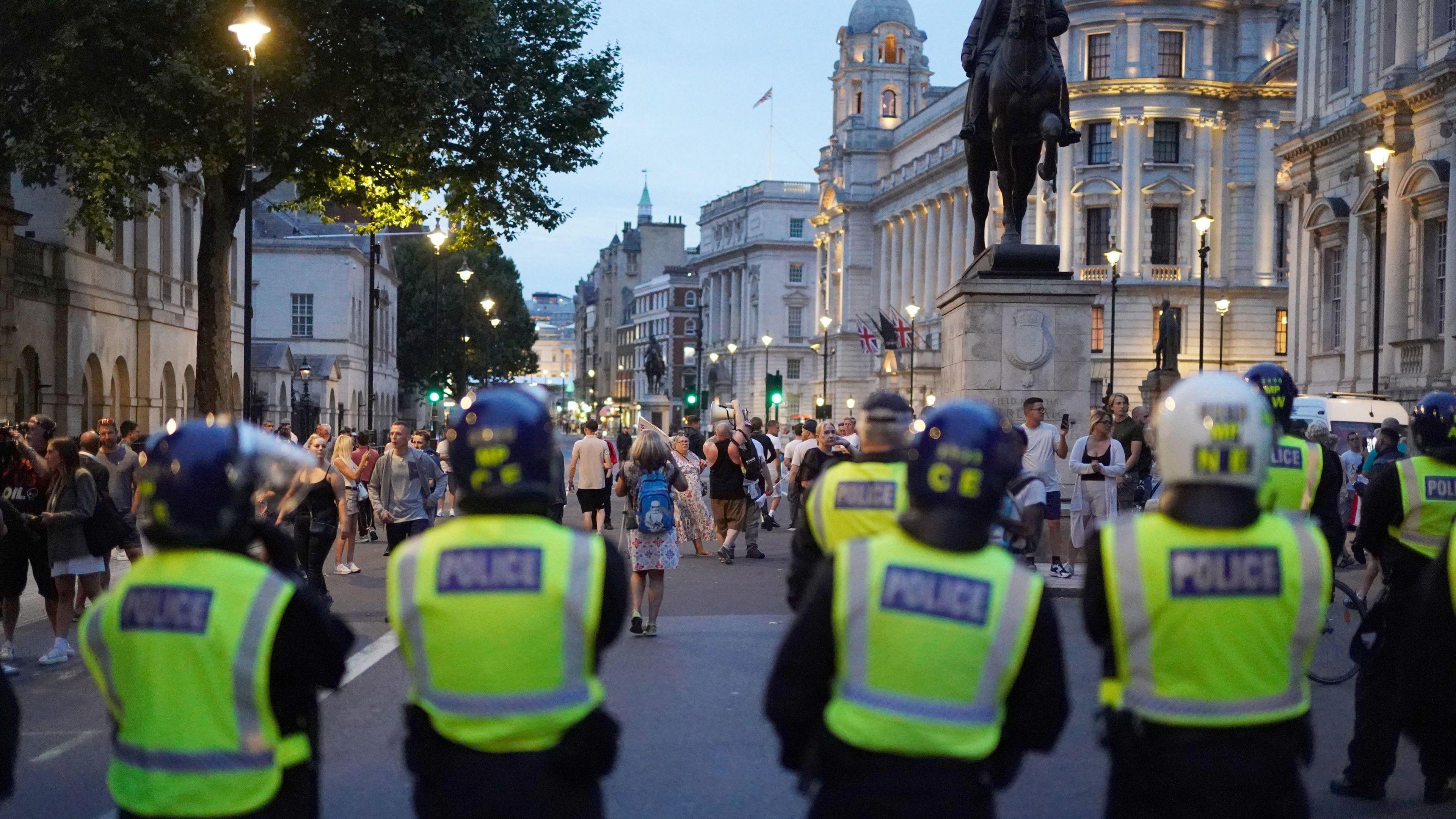Anti-racism protesters gather to show 'unity'
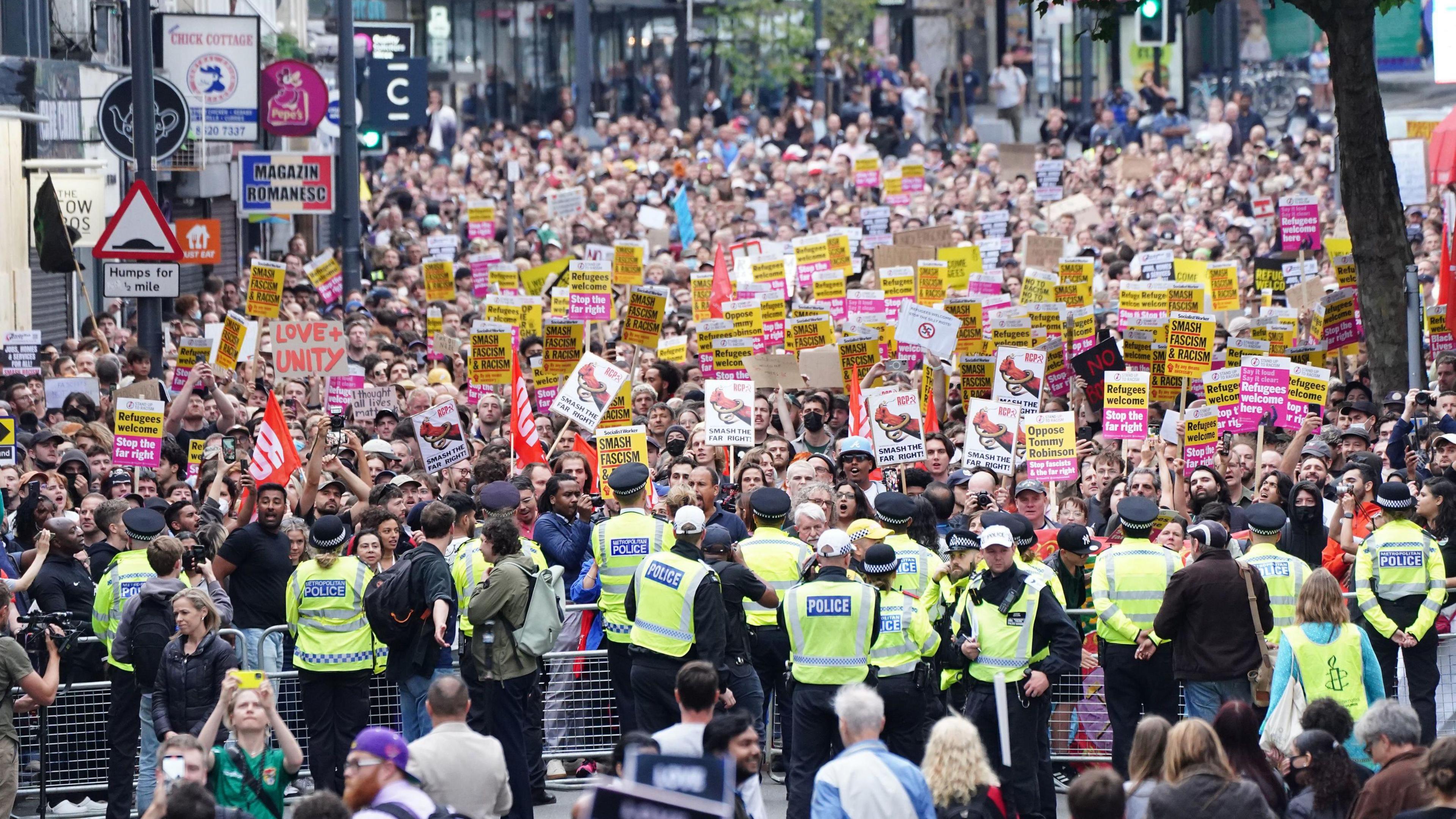
More than 1,000 people in Walthamstow took to the streets to spread a message of peace
- Published
Large crowds of anti-racism protesters have gathered in north, north-west and east London locations, the Metropolitan Police said.
The force had been ready to deploy more than 1,300 officers on Wednesday evening over concerns that unrest was expected in the capital and could turn violent.
In Walthamstow, more than 1,000 people took to the streets chanting, clapping and preaching a message of peace.
Similar scenes unfolded in North Finchley and Harrow.
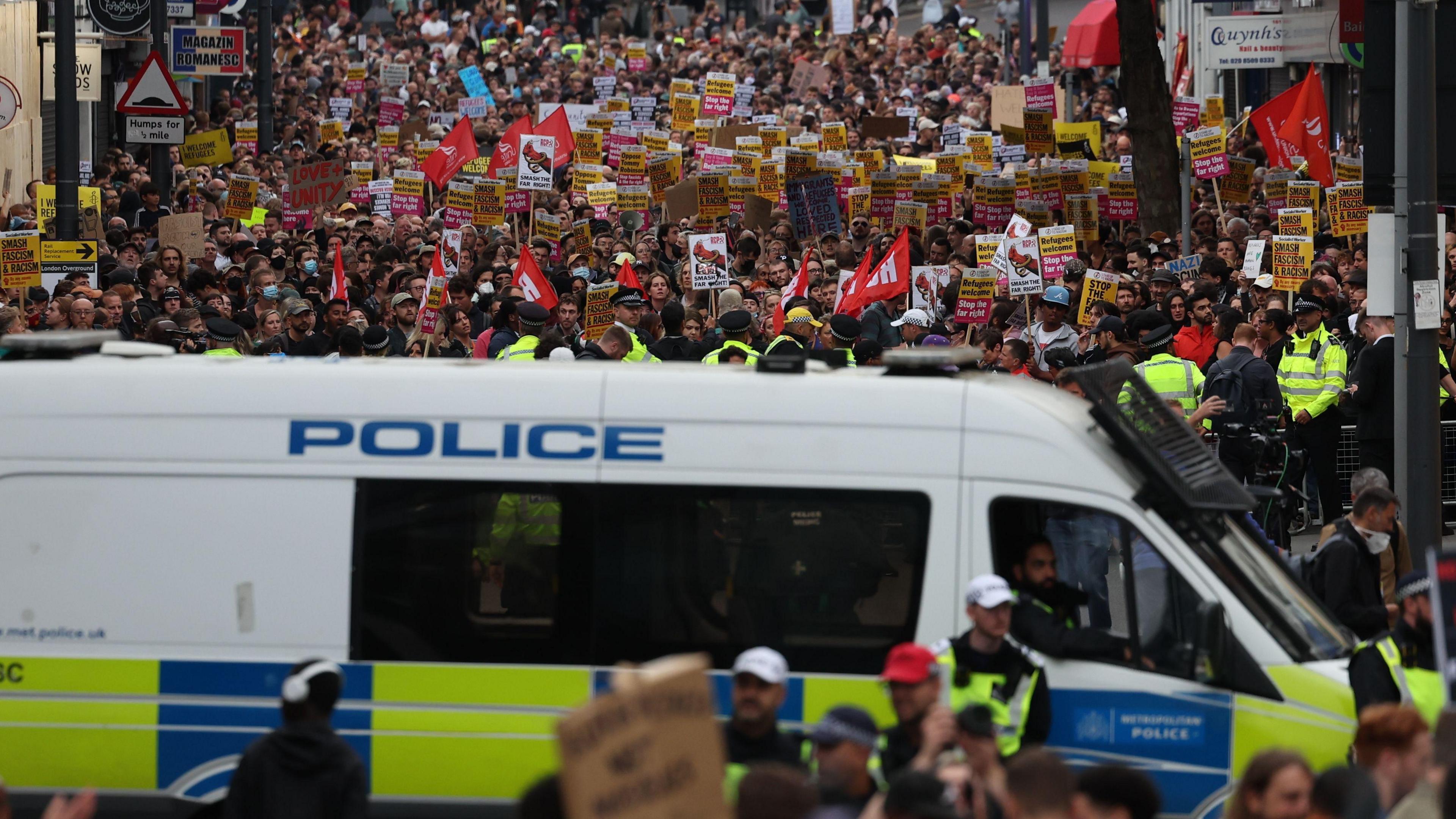
The Met Police had officers across the capital "monitoring a number of events and protests" on Wednesday night
It followed more than a week of violence in some towns and cities across England and Northern Ireland.
More than 100 people were arrested in central London last week when officers clashed with demonstrators in Whitehall.
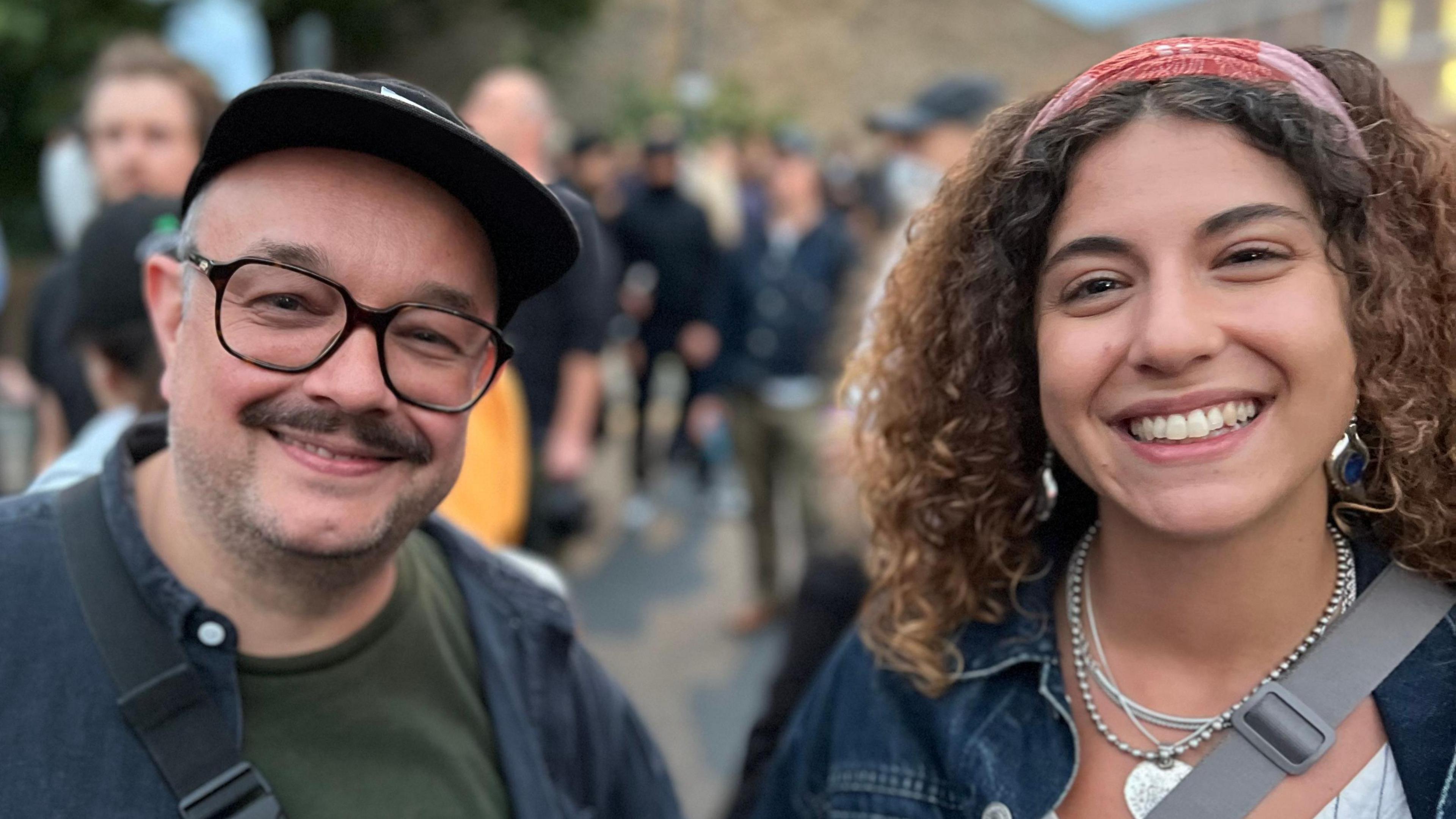
Frank Merritt and Clara Serra López said they went to the anti-racism protest in Walthamstow to "support diversity"
Many of those who gathered in Walthamstow on Wednesday evening held signs reading “Hate not welcome here”, “Stop the far-right” and “I welcome refugees”.
Frank Merritt, who was there, said it was a “lovely atmosphere full of great people showing strength and unity”.
Clara Serra López, who was also at Walthamstow, said: “England wouldn't be anything without immigration.
“I'm here because I am an immigrant, a European immigrant, which comes with a lot of privilege.
“It is quite an important time for white British and white immigrants to show up for the ones that might be really fearful to come here.”
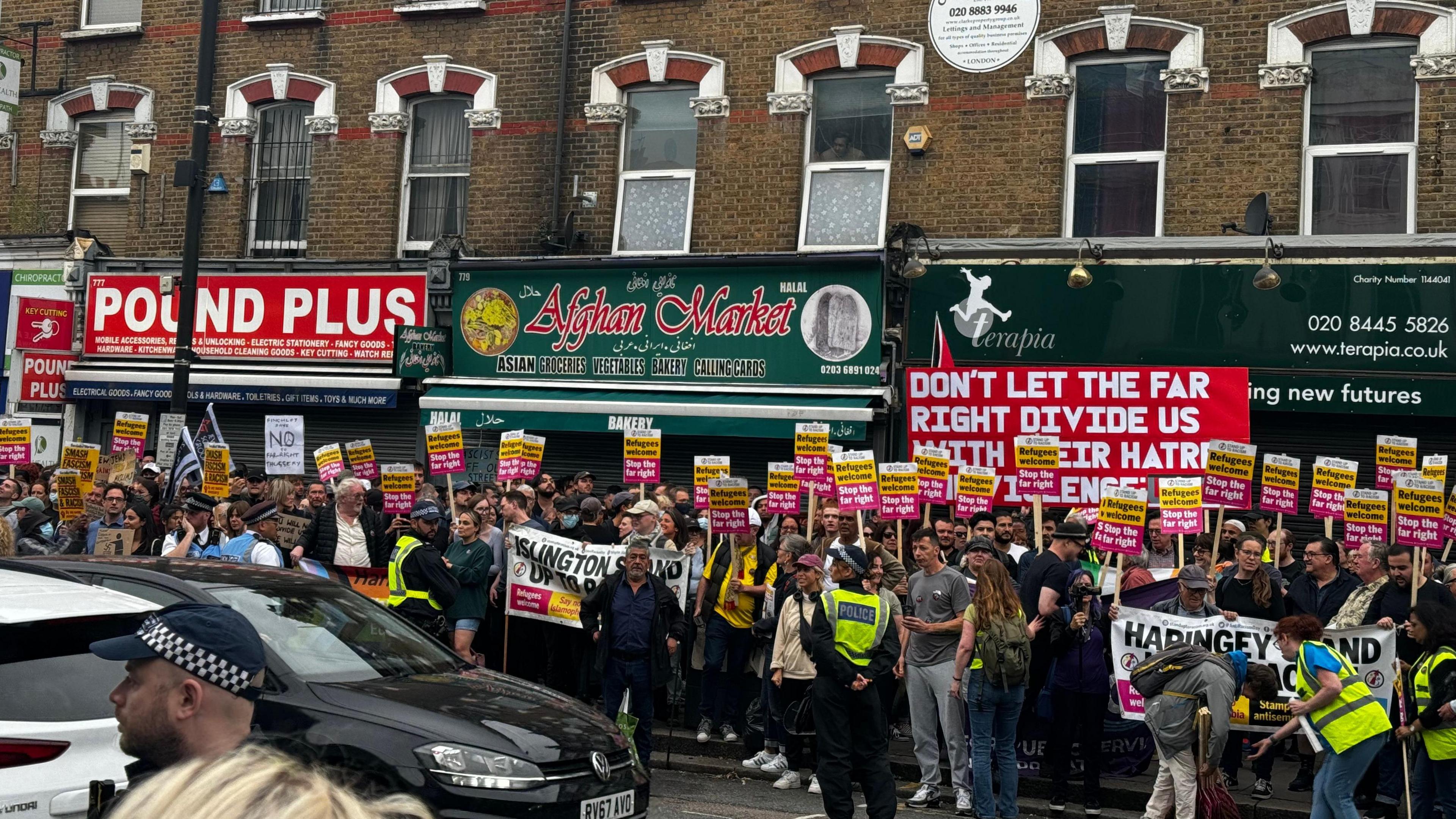
In North Finchley, shops closed early as anti-racism protesters gathered
On North Finchley High Road, people held placards saying “refugees welcome”.
In Harrow, similar placards were waved by groups of people who had gathered following suggestions an immigration office may be targeted.
Shops at all three locations had closed early as communities braced themselves for possible unrest, and some had boarded up their windows.
The Met said officers were across the capital "monitoring a number of events and protests".
It added: "Large crowds of anti-racism protesters have gathered in Waltham Forest and North Finchley.
"They are engaging with officers who are at both locations."
'Pure anti-social behaviour'
Elsewhere, the Met said in Croydon about 50 people gathered with the “intention to cause disruption and fuel disorder”.
"This is not linked to protest, this appears to be pure anti-social behaviour,” the force said in a post on X, formerly Twitter.
The Met said eight people were arrested for assaulting emergency workers, possession of offensive weapons and other offences, with more arrests anticipated.
Deputy Assistant Commissioner Andy Valentine had said more than 1,300 public order officers were ready to be deployed in addition to officers already working in communities across the capital.
“We will not tolerate any disorder and will make arrests," he said.
He added the force would use mounted units, dog handlers, intelligence experts and "evidence gatherers", as well as "retrospective facial recognition".
"This technology can be used even when offenders are wearing masks," he said.
"This is a national critical incident and we will do everything in our power to protect London and its communities."
London Fire Brigade said it was also poised to respond to incidents.
The disorder follows the fatal stabbing of three girls in Southport, with the subsequent unrest partly fuelled by misinformation online, the far right and anti-immigration sentiment.
Mr Valentine said Met officers had "faced dangerous and violent scenes and verbal abuse" during the disorder last week, and "members of the public and officers have been attacked, many have been injured".
He added: "Our officers and our communities have truly pulled together in these difficult times."
Across the UK, suspects have continued to appear in court, with about 100 people charged and more than 400 arrested in connection with the disorder.
Hundreds of extra prison spaces are also being made available to deal with the influx.
Additional reporting by Harry Low, Lauren Stanley, Nick Johnson & James Kelly
Listen to the best of BBC Radio London on Sounds and follow BBC London on Facebook, external, X, external and Instagram, external. Send your story ideas to hello.bbclondon@bbc.co.uk, external
- Published7 August 2024
